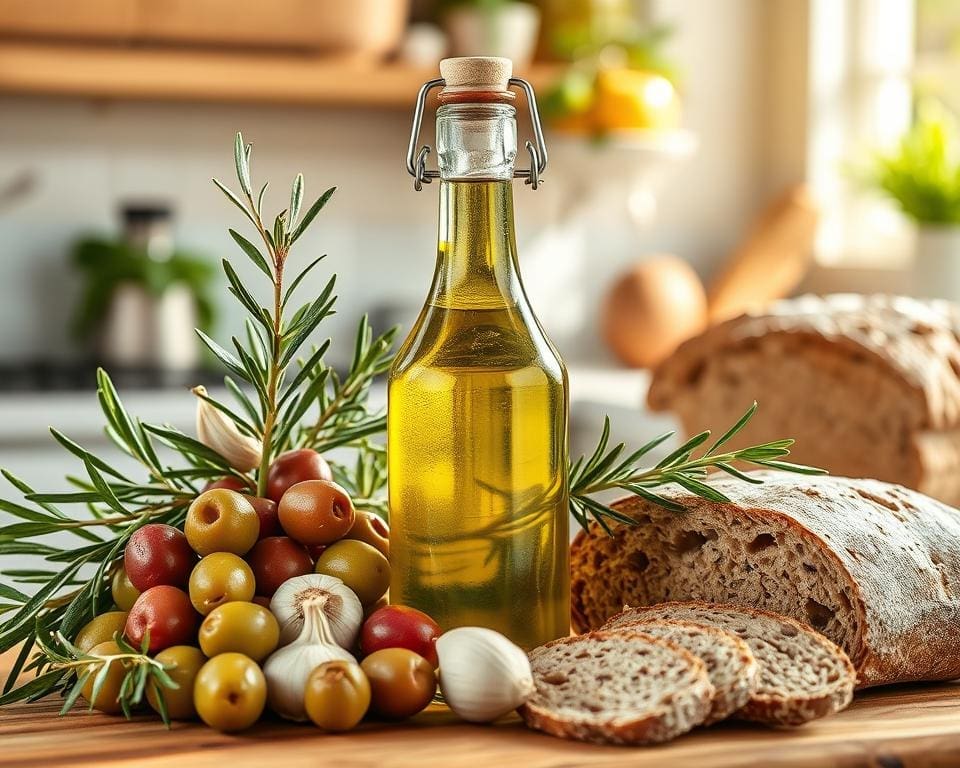Embracing olive oil in your culinary adventures is not merely a matter of taste; it’s a pivotal step towards enhancing your health. Research has consistently shown that olive oil, particularly extra virgin varieties, is rich in monounsaturated fats, notably oleic acid, which contributes to a reduced risk of heart disease. Furthermore, its plethora of antioxidants, vitamins, and anti-inflammatory properties underscores its heart-healthy benefits.
As a cornerstone of the Mediterranean diet, olive oil is celebrated for its ability to promote longevity and overall well-being. By opting for this remarkable cooking choice, not only do you enliven your dishes with exquisite flavours, but you also empower your body with its myriad health advantages.
Understanding the Benefits of Olive Oil
Delving into the remarkable advantages of olive oil reveals its rich nutritional profile, which boasts essential vitamins and compounds that contribute to overall wellness. This liquid gold is not just a cooking ingredient; it is a powerhouse of health benefits waiting to be explored.
The Nutritional Profile of Olive Oil
Olive oil stands out among cooking oils for its unique blend of nutrients. It contains a significant amount of vitamin E, flavonoids, and phenolic compounds. These components are known for their positive effects on cardiovascular health. The balance of monounsaturated fats in olive oil plays a vital role in reducing bad cholesterol (LDL) while promoting good cholesterol (HDL), nurturing the heart in the most delicious way.
How Olive Oil Promotes Heart Health
Regular consumption of olive oil contributes to enhanced heart health. Research supports the notion that the monounsaturated fats in this oil can lower the risk of heart disease. Its antioxidant properties help combat oxidative stress, presenting a compelling case for including olive oil as a staple in one’s diet. By switching to olive oil as the primary fat in cooking, individuals can significantly improve their heart health.
Comparison with Other Cooking Oils
When comparing olive oil with other common cooking oils such as canola and sunflower oil, the differences are pronounced. Olive oil tends to have lower levels of omega-6 fatty acids, which are often linked to inflammation and other cardiovascular concerns. This unique composition positions olive oil as a superior choice for those prioritising heart-friendly dietary options.

Olive Oil: A Heart-Healthy Cooking Choice
Extra virgin olive oil (EVOO) stands as the pinnacle of quality in the olive oil spectrum. Extracted from the first pressing of high-quality olives, this oil retains a rich array of nutrients and antioxidants. The distinctive taste and health benefits make it a prime choice for anyone looking to enhance their culinary practices while prioritising heart health.
Extra Virgin Olive Oil Explained
What sets extra virgin olive oil apart from its counterparts is its unrefined nature. This minimal processing allows for the preservation of vitamins and the delightful flavour profile that complements various dishes. Not only does EVOO boast a high content of healthy fats, primarily monounsaturated fats, but it also contributes to better overall heart function. Including extra virgin olive oil as part of your cooking repertoire can lead to numerous health benefits.
Incorporating Olive Oil into Your Diet
Embracing olive oil in your daily meals fosters a healthier lifestyle. Here are a few delightful ways to incorporate olive oil:
- Use it as a base for homemade salad dressings by whisking it with balsamic vinegar or lemon juice.
- Drizzle it over roasted vegetables to enhance their natural flavours.
- Add a splash of extra virgin olive oil to pasta dishes for a luxurious finish.
- Substitute olive oil for butter or margarine in baking to introduce healthy fats.
By choosing to incorporate olive oil, you replace saturated fats with a source of wholesome nutrition. This shift not only adds depth and richness to meals but supports heart health in a deliciously satisfying way.
Delicious Recipes Featuring Olive Oil
Exploring the culinary world of olive oil reveals a multitude of ways to enhance your meals. This section presents simple yet delightful recipes, showcasing olive oil as the star ingredient.
Simple Salad Dressings with Olive Oil
Creating salad dressings with olive oil elevates the flavours of fresh vegetables. A basic vinaigrette can be made effortlessly by combining the following ingredients:
- 3 parts olive oil
- 1 part balsamic vinegar or lemon juice
- Salt and pepper to taste
Modify the dressing by adding herbs like basil or oregano for an extra burst of flavour. With this easy recipe, salads transform into vibrant dishes filled with freshness.
Cooking Techniques: Sautéing and Roasting
Sautéing with olive oil not only brings out the natural sweetness of vegetables but also infuses them with rich flavours. Try this technique for quickly cooking greens or root vegetables:
- Heat a generous amount of olive oil in a skillet over medium heat.
- Add chopped vegetables and sauté until tender and slightly caramelised.
- Season with salt, pepper, and your favourite spices.
Roasting vegetables with olive oil is equally advantageous. Drizzle your chosen veggies with olive oil and season before placing them in a hot oven. This method results in a satisfying caramelisation while retaining their nutrients.
Olive Oil in Baking: A Surprising Twist
Many are surprised to discover how versatile olive oil can be in baking. It can replace butter in various recipes, offering a moist texture and a unique flavour profile. Consider using olive oil in cakes or muffins. Start by substituting half the butter with olive oil and enjoy a delightful surprise:
- Olive oil chocolate cake
- Olive oil and lemon muffins
These baked goods not only provide a healthful twist but also showcase the delightful flavours of olive oil.
The Mediterranean Diet and Olive Oil
The Mediterranean diet is celebrated not only for its delicious flavours but also for its profound health benefits, particularly in promoting heart health. Central to this diet is olive oil, a staple that is rich in monounsaturated fats and antioxidants, which work to lower bad cholesterol levels and reduce inflammation. By prioritising whole foods like fruits, vegetables, whole grains, and healthy fats such as olive oil, individuals can cultivate a robust, heart-healthy lifestyle.
Research from the Mediterranean Diet Foundation shows that those who closely follow this nutritional approach experience significantly lower risks of chronic diseases, including cardiovascular ailments. The evidence is compelling; a diet abundant in olive oil can be an effective measure for protecting heart health, fostering longevity, and enhancing overall well-being. With its unique flavour and versatility, olive oil can transform a simple meal into a nutritious feast.
To truly embrace the Mediterranean diet, consider integrating olive oil into your daily cooking practices and meal preparations. Whether it’s drizzled over fresh salads, used for sautéing vegetables, or as a base for marinades, olive oil serves not just as a cooking choice but as a lifestyle choice that nourishes both the heart and soul. Adopting this approach can inspire you to enjoy the delightful flavours of the Mediterranean while also prioritising your health.








